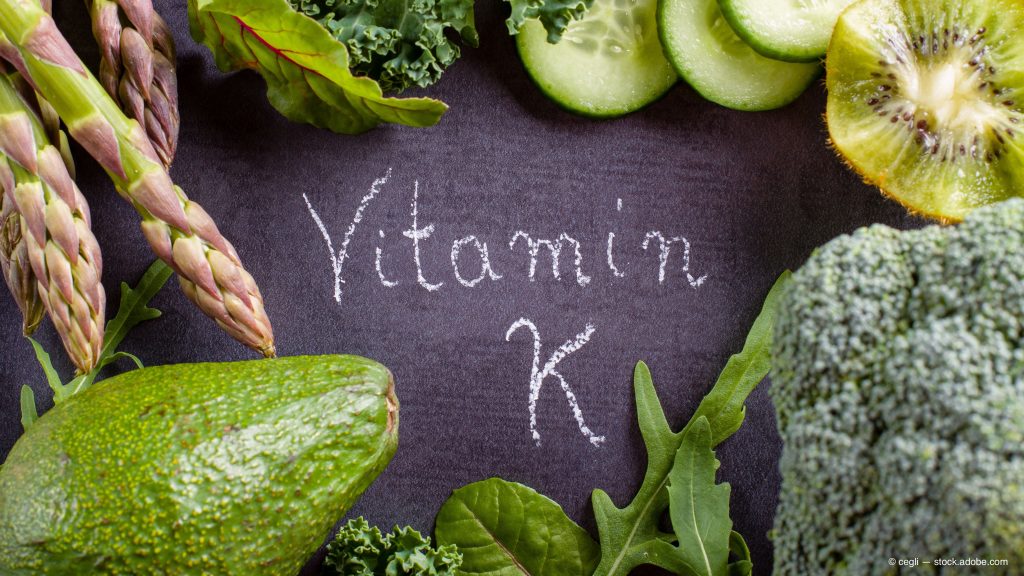Vitamin K is one of the most important supplements for blood clot as it helps to prevent the risk of excessive bleeding. However, vitamin K is not like a regular dietary supplement and needs to be taken care of thoroughly.[1]
Vitamin K, very much like Vitamin B, is a compound group. Out of the compound group, vitamin K1 and vitamin K2 are the most important ones. Leafy green vegetables are the main source of vitamin K1, while vitamin K2 is mostly obtained from cheese, eggs, meat and even produced by bacteria.
Vitamin K1 is the most widely used form of vitamin K in the US. In recent times, vitamin K2 has been successful in treating osteoporosis as well as bone loss due to steroids. However, more research needs to be done to determine the claim of it. There is no clear data about the effectiveness of vitamin K2 in treating osteoporosis. [2]

Are people taking vitamin K?
Yes and in huge numbers.
Low levels of vitamin K can pave the way for excessive bleeding in case of cuts. Despite the importance of vitamin K, the lack of it is still observed in adults. But not every adult lacks vitamin K. Newborn infants are the most devoid of vitamin K. It is for this reason they are injected with it.
However, one needs to be careful with vitamin K while on blood-thinning medicines. At the same time, the overdose of these blood-thinning medicines can be treated by vitamin K.[3]
Vitamin K deficiency in adults is rare, but if it exists, you may be prone to a lot of health risks. Some of the most common ones include
- Drugs that can interfere with vitamin K consumption
- Malnourished people
- Alcohol addicts
- People who have diseases that might affect the digestive tract absorption rate such as celiac disease or Crohn’s disease
If your body lacks vitamin K, it is necessary to see a doctor. Often the body fails to produce vitamin K naturally, or there are possibilities that your diet isn’t healthy. Hence, in such cases, the doctor may prescribe vitamin K supplements for extra advantages.[4]
Vitamin K is claimed to be useful for following
- Cancer
- Morning sickness
- Treating spider-veins
But the proof supporting these claims, the research is yet to be made. Hence, these remain unproven.
Can I get vitamin K naturally from food?
Before taking supplements, as suggested, the doctor would recommend you to bring changes in your diet. A healthy diet comprising of leafy green vegetables and meats can be potential boosters of vitamin K in your body.[5]
Natural food sources from where you can derive vitamin K include
- Legumes such as green beans
- Green vegetables like broccoli, spinach and asparagus
The daily required quantity of vitamin K may vary from person to person. It is not possible to keep your diet limited to only legumes and green vegetables. Hence, there are other food items too that can provide you with the daily recommended intake of vitamin K which include[6]
- Liver meat
- Strawberry
- Egg
Are there any side-effects of vitamin K?
As much as vitamin K is beneficial, it has certain side-effects related to it.
The chances of side-effects due to oral consumption of vitamin K is rare.
Does vitamin K react with medicines?[7]
Blood-thinning medicines can interfere with vitamin K thereby bringing down its effectiveness. Some of the common drugs impacting the efficacy of vitamin K include medicines for
- Seizure
- High blood pressure
- High cholesterol
- Cancer
At the same time, you should avoid using medicines like blood thinners, aspirin, and antibiotics. These drugs might react with vitamin K and cause more harm to your body than good.
What are the risks involved with the usage of vitamin K?
One should never opt for using vitamin K supplements on their own, until and unless suggested by the healthcare provider.
People with heart conditions need to keep a check with their diet to balance the intake of vitamin K in the natural way and through supplements.[8]
How much vitamin K should you intake?
You can either get vitamin K from your food or from the supplements. But, it is extremely necessary to keep a check with the amount of vitamin K you are having each day.[9]
Often people fail to get vitamin K from their diets, which is why they are prescribed medicines. The recommended daily amount as per the age group include
0-6 months: 2mg
7-12 months: 2.5mg
1-3 years: 30mg
4-8 years: 55mg
9-13 years: 60mg
14-18 years: 75mg
19years and above: 90mg (female) and 120mg (male)
Pregnant and breastfeeding women: 90mg (19years and above) and 75mg (below 19years of age)
The daily recommended intake of vitamin K varies significantly depending on your gender and age. As much as lack of vitamin K is dangerous, too much of it can be equally harmful.[10]
Although it doesn’t pose much of a danger, doesn’t mean it cannot. The above-mentioned details are set by health-care providers and have been labelled as the safe dose depending on gender and age.[11]
Precautions
Vitamin K is available in the market in a cream form.
Pregnancy and breastfeeding women
Vitamin K is safe for breastfeeding and pregnant women only if taken in the recommended amount.
Children
Children mostly get vitamin K1 which is safe to use when injected or taken orally.
Kidney disease
Excessive consumption of vitamin K can hamper your kidney dialysis and worsen the kidney disease.
Liver disease
Although vitamin K is aimed at treating blood clots, it can’t naturally treat clotting due to serious liver condition. Also, high doses of vitamin K can worsen the condition for people suffering from liver dise
[1] https://www.ncbi.nlm.nih.gov/pmc/articles/PMC4600246/
[2] Booth SL, Suttie JW. Dietary intake and adequacy of vitamin K. J Nutr 1998;128:785–8. [PubMed] [Google Scholar]
[3] Krueger T, Westenfeld R, Schurgers L et al. . Coagulation meets calcification: the vitamin K system. Int J Artif Organs 2009;32:67–74. [PubMed] [Google Scholar]
[4] https://www.ncbi.nlm.nih.gov/books/NBK551578/
[5] Booth SL, Al Rajabi A. Determinants of vitamin K status in humans. Vitam Horm 2008;78:1–22. 10.1016/S0083-6729(07)00001-5 [PubMed] [CrossRef] [Google Scholar]
[6] https://www.ncbi.nlm.nih.gov/pmc/articles/PMC3183594/
[7] https://www.ncbi.nlm.nih.gov/books/NBK536983/
[8] Cranenburg EC, Schurgers LJ, Vermeer C. Vitamin K: the coagulation vitamin that became omnipotent. Thromb Haemost 2007;98:120–5. [PubMed] [Google Scholar]
[9] Ryan-Harshman M, Aldoori W. Bone health. New role for vitamin K? Can Fam Physician 2004;50:993–7. [PMC free article] [PubMed] [Google Scholar]
[10] https://www.ncbi.nlm.nih.gov/pmc/articles/PMC3648719/
[11] Tie JK, Stafford DW. Structural and functional insights into enzymes of the vitamin K cycle. J. Thromb. Haemost. 2016 Feb;14(2):236-47. [PMC free article] [PubMed]

